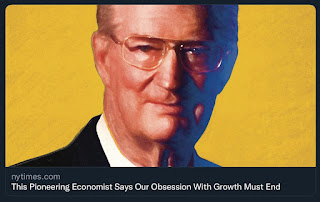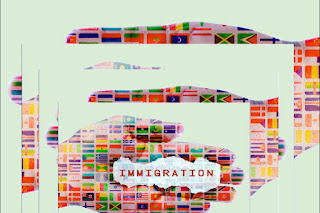The regional approach to the issue of migration in The Americas by the United States denounced!
The fall of the world GDP, which is around 10%, plus poverty and inequality, will increase the migratory pressure... in 2021 alone, one out of every 88 inhabitants of the planet left their native country
More and more people die trying
People will not stop migrating and they will do so even if the conditions worsen, there is no legal protection and they can be at the mercy of various forms of violence and exploitation, ranging from underground human trafficking networks to various forms of fraud in the destination countries, where they will become a new layer of ultra-precarious migrants.
An incident on Friday July 1
st at Morocco’s border with Spain left 37 irregular migrants dead and hundreds injured, 13 of them seriously. The repercussions were that of an international scandal and calls for a thorough investigation by the United Nations raised from everywhere.
The victims died as a result of military repression, crushing or suffocation, when there was a human avalanche and they were trapped in a watercourse near the border.
While authorities put the blame on the organized crime, the spokesman of the Secretary General of the United Nations Organization believes there was an excessive use of force on both sides of the border.
Referring to what many media have described as a "massacre," UN official Stéphane Dujarric pointed out that authorities observed an "excessive use of force," which is "unacceptable" and therefore must be investigated. He recalled that States "have obligations" under the international law and human rights.
For its part, the UN Committee for the Protection of Migrant Workers and their Families urged the governments of Spain and Morocco to "immediately" open a "thorough, independent and transparent" investigation, to which both parties agreed.
Three days later, on the other side of the Atlantic, in San Antonio, Texas, United States, 51 irregular migrants were found suffocated in the trailer of a truck. Sixteen were rescued alive, including four minors.
Translated by ESTI
The discovery was made after screams were heard from inside the container on the truck, which had no water, air conditioning or oxygen, while the temperatures outside were around 40 degrees Celsius.
In addition, someone detected a corpse in the vicinity of the truck, abandoned near a military base, 16 kilometers from San Antonio and 250 kilometers from the Mexican border.
The first investigations point to three detainees. Moreover, the vehicle's license plate was from the United States, which made it easier for it to cross the border without being subject to mandatory inspection.
The White House has committed itself to clarify the facts and dismantle the trafficking networks, at a time when the country reports high immigration peaks and a new record of illegal entry registration, with more than 239,000 in May, most of which cross through the border with Mexico.
A few hours later, it was known that the most recent tragedy in the Central Mediterranean left more than 22 missing migrants and 71 survivors; while another 500 people rescued and on board ships of European humanitarian organizations were waiting to be taken to the mainland.
NEWS THAT IS NO LONGER
Migration news have long been prominent in mainstream media all over the world; but they grow in frequency and cruelty as the world economic crisis, war conflicts, the impact of the pandemic, poverty, famine, blockades, sanctions, political manipulation of the issue and many other factors deepen, which have led experts to affirm that we are going through one of the greatest migratory crises in history, with more than one hundred million displaced persons in the last two years, according to the United Nations High Commissioner for Refugees (UNHCR).
The agency indicates that, in 2021 alone, one out of every 88 inhabitants of the planet left their native country.
It adds that 83% of global migrants move to low- and middle-income countries, which are sometimes transit points to destinations such as the United States or the European Union, but the "migration shielding" policies of these countries often cut off migrants before they reach their destination.
The Missing Migrants project of the International Office for Migration (IOM) recently revealed that more than 4,000 deaths per year have been recorded on migration routes around the world since 2014, but this is a minimum estimate, because most of these deaths go unrecorded.
The report adds that since 1996 there have been more than 75,000 deaths in the attempt to migrate, and 48,423 from January 1, 2014 to 2022. These statistics partially reflect the disaster because they do not include the level of suffering it generates in relatives and confirm the dangers or risks of facing the adventure.
The three most lethal points, according to the IOM project, are the Mediterranean Sea, with 23,900 migrants dead or missing; Africa, with 11,400, and America with 6,200, 60% on the border of Mexico and the United States.
According to experts, there will be more migrants and more will die in the attempt, as it has become a trend in the last two years, a trend that will worsen in the long term, as the enormous recession generated by the pandemic will drastically change migration.
The fall of the world GDP, which is around 10%, plus poverty and inequality, will increase the migratory pressure.
They estimate that people will not stop migrating and they will do so even if the conditions worsen, there is no legal protection and they can be at the mercy of various forms of violence and exploitation, ranging from underground human trafficking networks to various forms of fraud in the destination countries, where they will become a new layer of ultra-precarious migrants, according to the digital media IzquierdaWeb.
The lack of seriousness by some countries in the search for concrete solutions to these serious phenomena, together with the growing tendency to polarization and conflict between powers, are considered obstacles to solving problems that require integrated or coordinated responses at the international level.
Recently, the Cuban Minister of Foreign Affairs, Bruno Rodríguez Parrilla, in addressing the regional approach to the issue by the United States, denounced that the Hemispheric Declaration on Migration and Protection of Migrants imposed by Washington at the Ninth Summit of the Americas "is an example of its racist, xenophobic and plundering vision of migrants. It does not address in any way the real causes of migration".
He reaffirmed that "it will be impossible to obtain concrete results in the management of irregular migratory flows if there is no genuine dialogue and collaboration among all the governments involved to respond to a problem of a global nature."


.jpg)





